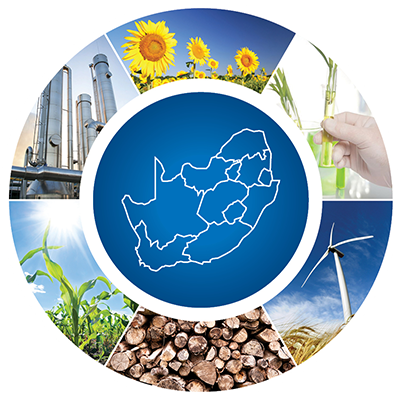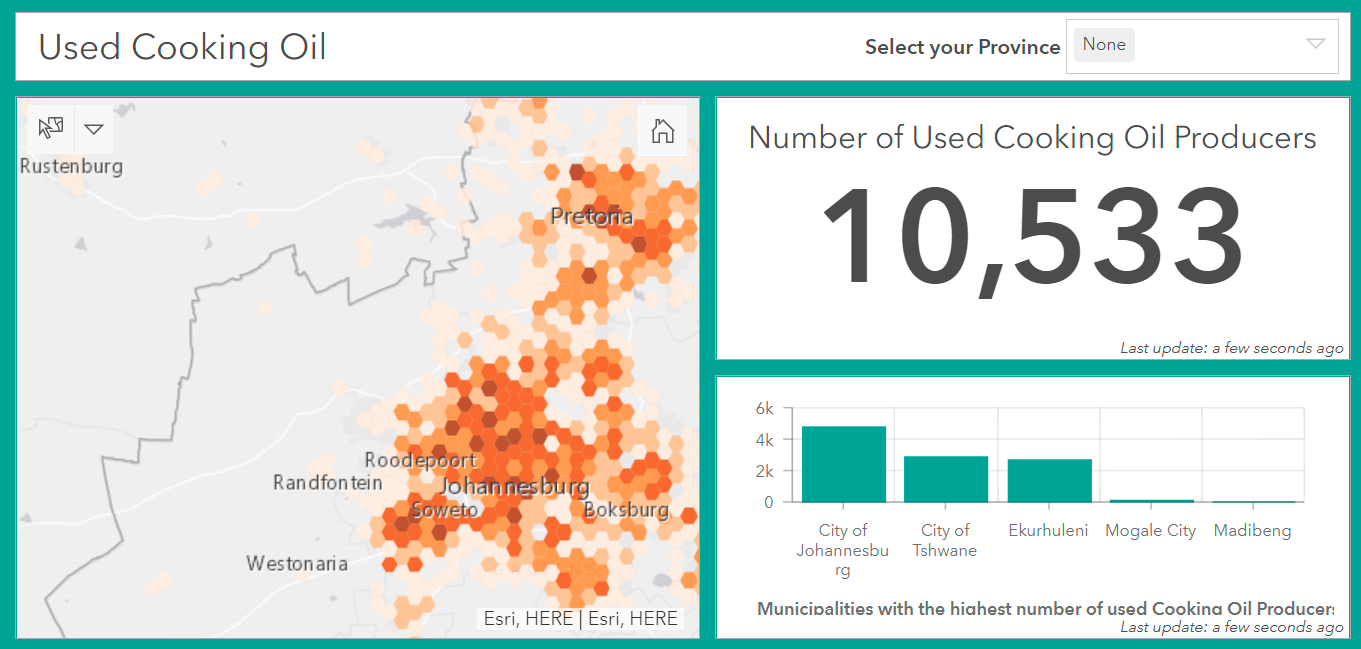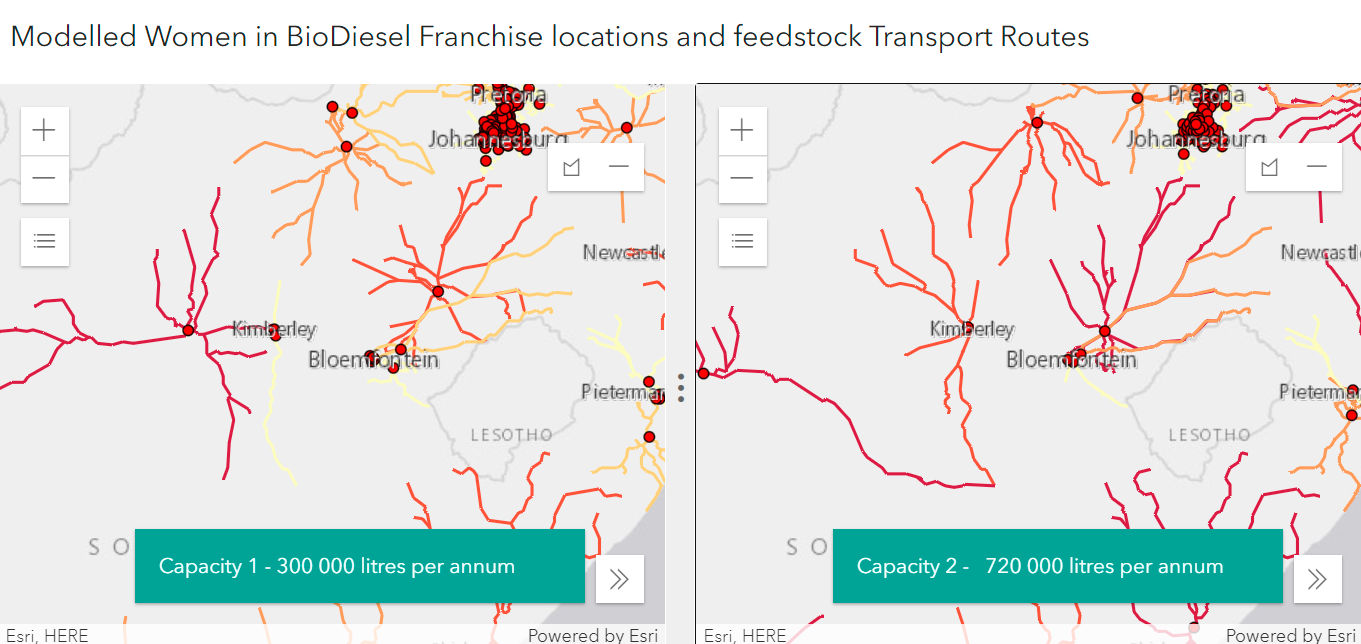Women in BioDiesel
‘Women in biodiesel’ is a project aimed at establishing ten small decentralized black women-owned biodiesel enterprises to increase (renewable) energy access and gender transformation in South Africa. This case study describes the approach used to characterise the volumes of used cooking oil produced in South Africa and also investigates the optimal locations to establish women-owned biodiesel enterprises.
Authors: Hayden Wilson
Overview
The ‘Women in biodiesel’ project aims to leverage the waste stream that results from the food industry and establish decentralised black women-owned biodiesel enterprises to increase (renewable) energy access and gender transformation in South Africa. The project uses commercially proven technology by iLive to produce a minimum combined volume of 3 million litres of biodiesel per annum from used cooking oil (UCO) collections from restaurants, fast food outlets and supermarkets.
The South African Environmental Observation Network (SAEON) undertook to provide project assistance to the “Women in BioDiesel Project” in the form of feedstock characterisation, surveys to test assumptions regarding the end use for used cooking oil as well as perform techno-economic feasibility analyses to determine the optimal site allocation for each of the “Women in BioDiesel” franchises. This case study showcases the key findings and outcomes from this work.
Vegetable oil in South Africa
Chart 1: Vegetable Oil production, trade and consumption for 2016/17 in South Africa (Esterhuizen, 2018)
Mapping the used cooking oil value chain
In order to test the feasibility of the biodiesel franchise business case, It was necessary to first determine the volumes of used cooking oil being produced by the various food industry businesses and determine the location and number of used cooking oil producers within different regions in South Africa.
Used cooking oil producer locations.
This dashboard indicates locations of used cooking oil producers around South Africa. It also showcases hot spot areas where used cooking oil is predominantly generated in liters per municipal region.
Techno-economic feasibility analyses
Techno-economic feasibility analysis for the “Women in BioDiesel” project consisted of determining the “optimal” locations to site the franchises based on the distribution and volumes of available biodiesel feedstock. It is expected that the franchises will process between 300 000 and 720 000 litres of used cooking oil per annum and that optimal locations for franchises will be the locations where the franchise can acquire the required volume of feedstock while also minimizing the costs of transportation.
The modelling process consisted of generating service regions for candidate facility locations and then ranking the locations based on the relative transport costs required for each candidate facility.
Data regarding the number of facilities each province can sustain as well as the transport costs and distances per modelled franchise location are presented below:
The following map presents the modelled franchise locations and the associated service regions for each facility capacity scenario:
Least cost options for biodiesel production were selected for each province, metrics used to calculate a final R/20 litre bucket are presented below.
Conclusions
The Women in BioDiesel project showcases how
the spatial logistical modelling platform developed for the BioEnergy Atlas of
South Africa can be directly utilised to support small business initiatives.
The data outputs from the modelling process allow business owners to optimise
their spatial logistics by selecting focal locations for collecting used
cooking oil to convert into biodiesel.
Locations with the smallest service areas are
typically located within the major metropolitan municipalities of South Africa.
It is clear that based on the currently available information regarding used
cooking oil producers, these regions are capable of supporting several biodiesel
franchises.
The spatial logistical information from the Women
in BioDiesel case study has been disseminated to franchise owners, and now the
next stage is for the franchise owners to use the spatial logistical
information to develop partnerships and offtake agreements with used cooking
oil producers within their target regions.
Bibliography
- Esterhuizen, D. (2018) The supply and demand for oilseeds in South Africa – United States Department of Agriculture – Foreign Agricultural Service <https://apps.fas.usda.gov/newgainapi/api/report/downloadreportbyfilename?filename=Oilseeds%20and%20Products%20Annual_Pretoria_South%20Africa%20-%20Republic%20of_3-28-2018.pdf>
- Fetola (2020) Women in BioDiesel Market Brief <http://www.woesa.com/files/2020/10/WIB-Accelerator-Overview-2020.pdf>








